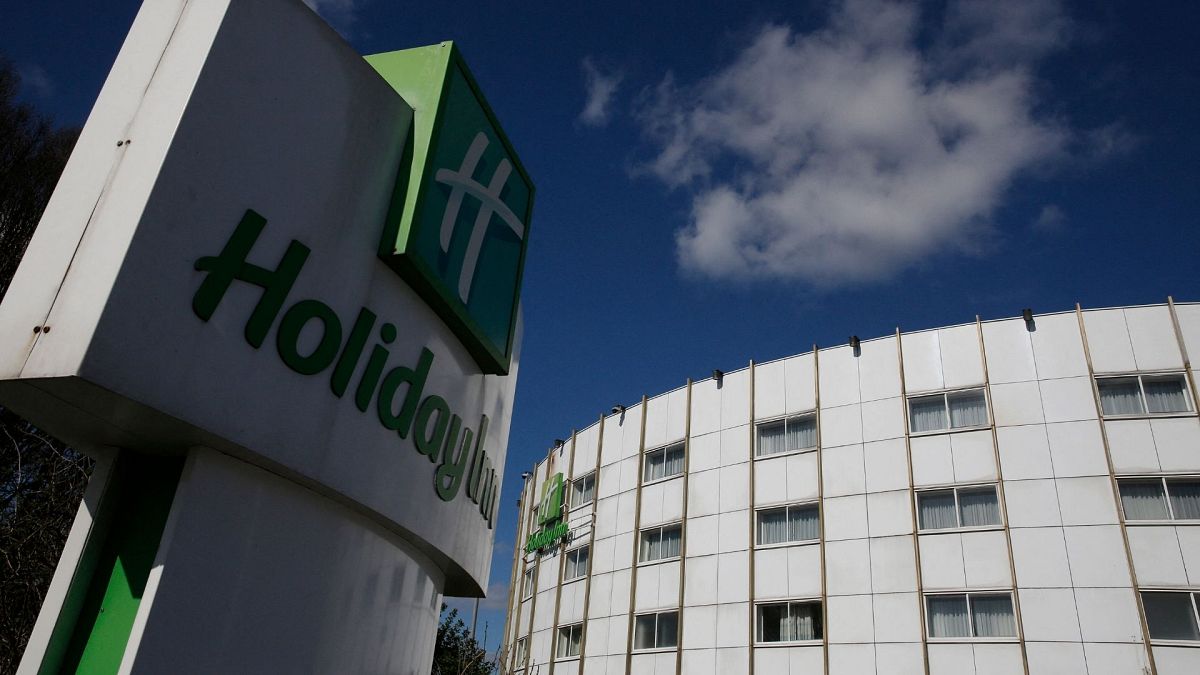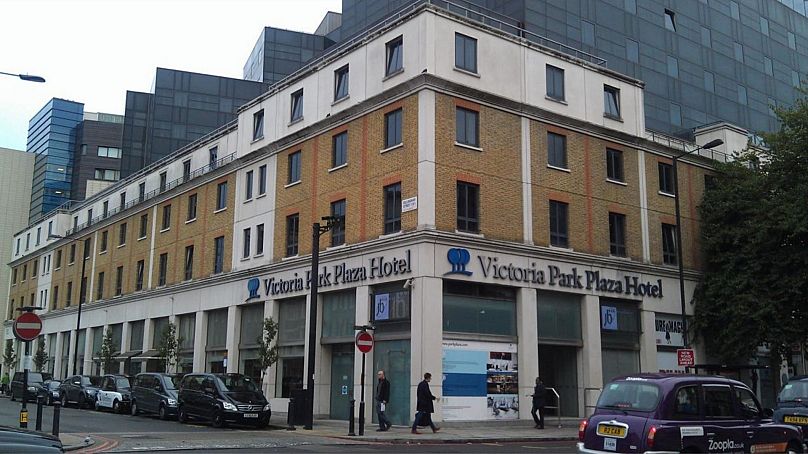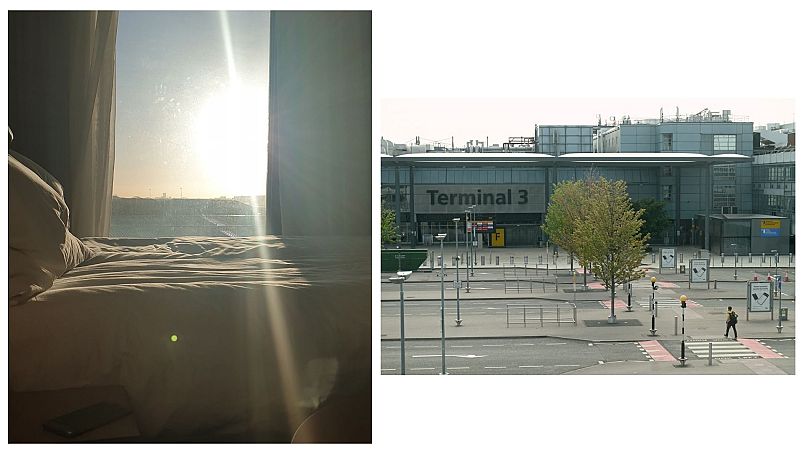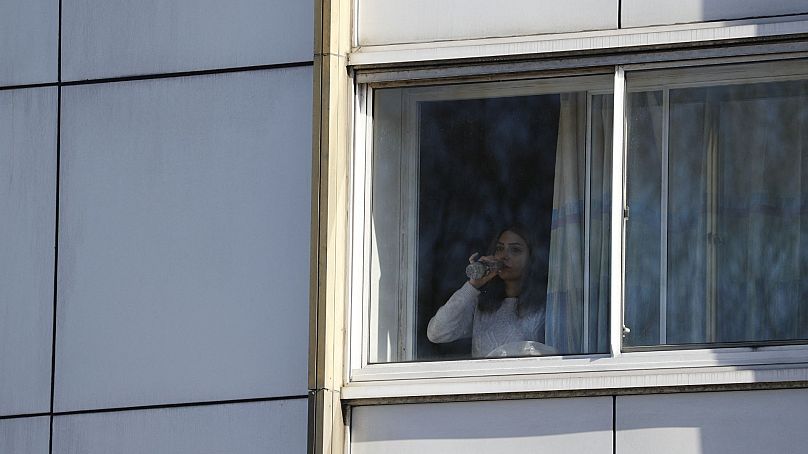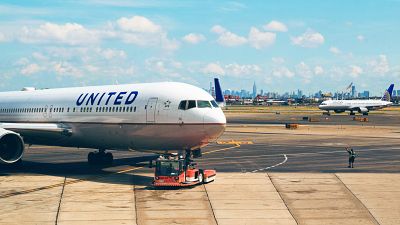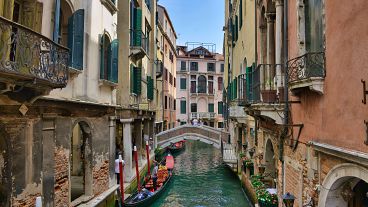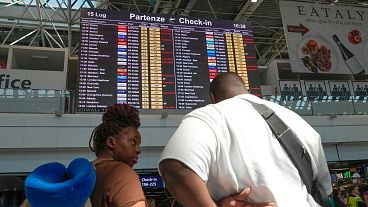Guests pay upwards of €4,000 for 10 days in "horrific" quarantine hotels.
As Omicron, a new strain of COVID-19, sweeps across the world, countries have started to reinstate tougher travel restrictions once again. And that means quarantine hotels are back.
In the past, they have been criticised for inadequate living conditions - and the UK’s hotels have been especially infamous.
In September of this year, a law firm took legal action against British quarantine hotels, accusing them of being a “fundamental breach of people’s human rights”.
There have been reports of sexual harassment, substandard food, squalid surroundings and adverse mental health effects from people’s stays.
Last week, England added 10 southern African countries to its red list and will require all arrivals to do a day 2 PCR test and self-isolate until they have received a negative result.
Arrivals from red list countries now have to go straight into quarantine in government-mandated hotels. These cost around €3,000, per person, for a 10-day stay.
Currently, the UK red list has 10 countries on it:
- Angola
- Botswana
- Eswatini
- Lesotho
- Malawi
- Mozambique
- Namibia
- South Africa
- Zambia
- Zimbabwe
There have been reports of space not even being available in the hotels, leading to travellers having to delay their return to the UK. But a Department of Health and Social Care spokesperson told Euronews Travel, “We are rapidly expanding capacity in light of 10 countries being added to the red list and expect to have more rooms online this week.”
We spoke to travellers who have stayed at UK quarantine hotels to find out if they are as bad as they seem.
“A prison-like experience”
In August of this year, a Mediterranean woman (identity protected) travelled to the UK with her partner from a red list country. The pair ended up at Park Plaza Victoria quarantine hotel, London, and describe the experience as “hell”.
In a daily blog, they charted their stay, comparing it to a prison-like experience. The couple explain how meals were meagre, there was no bread with breakfast and every meal came with copious amounts of unnecessary plastic cutlery. To top it all off, phone lines didn’t work which means they couldn’t reach reception with urgent requests and had to fight to make sure they got their allotted 20-minute walks. It was like living “in a cage”, she explains.
“I started to feel like I am drowning.”
They say they were able to order food from outside the hotel if they wanted to - the receptionist would drop it up to the room so they had no contact with the outside world.
But when you’re already paying thousands for a full-board stay, you don’t want to be spending more on take-away meals.
For this whole experience, they paid £3,715 (€4,369).
“I hope no one will ever need to stay in a managed quarantine hotel and this practice will end soon,” they conclude.
Rebecca Meranza Holding also exposed her experience publicly, this time via Twitter. Having travelled from the Democratic Republic of Congo (DRC) she was forced to pay £2,285 (€2,687) to stay at a UK quarantine hotel in September.
While staying there, she says she got a cold and needed some ibuprofen and lemsip - but pharmacies only delivered to hotels on Tuesdays and Thursdays. And to make things even worse, an Uber to transport the medication was going to cost £27 (€32) on its own.
Rebecca writes in one of her tweets that there are “virtually no cases” of COVID-19 in the DRC, so she was confused as to why regulations were so strict.
France, for example, had thousands more cases, she says, and is still free to travel to and from.
“I really enjoyed it”
For Andrew Shevlin, a British fitness trainer, UK hotel quarantine wasn’t as bad as for others.
Andrew was flying from Bali, Indonesia, into Heathrow and stayed at the Radisson Blu at Heathrow airport.
“In terms of the experience, I know this probably isn’t a popular opinion but I really enjoyed my quarantine,” he says.
“Obviously I didn’t enjoy being locked up in a room but my mindset personally was I’m in there either way, so I either make it fun or I moan about it for two weeks.
“I actually failed my PCR test on day 3 so my stay was extended so in total I did 14 days.”
He explains that he didn’t have COVID at the time, but had contracted it six weeks previously - and positive results can still show up on tests in the weeks following.
“I work as an online PT so I made lots of Instagram content just making light of it. I recreated the Olympics and drew a plastic face on a ball - and named him Wilson. I did Instagram lives, exercised every day, hit 10,000 steps (this was very difficult with three metres to walk up and down in) and read a load of books.”
In terms of the food, Andrew says it was “okay” but the fact you were able to order in was a godsend. “Although I got one hotel meal that was literally what comes out the wrong end of my dog,” he recalls.
“The hotel staff were as accommodating as they could be given the circumstances. It is what you make of it in my opinion, granted I was alone and lucky enough to be in the position where I could still work.”
“One of the most horrific experiences I’ve ever had”
One British citizen living in Dubai (identity protected) opened up to Euronews Travel about a particularly traumatic experience she had staying at Holiday Inn, London Heathrow, in February 2021.
When a close relative contracted COVID-19 and died, she travelled to the UK to join the rest of her family for the funeral. With Dubai on the red list at the time, she knew she would have to quarantine at a hotel, but expected there would be some sort of compassionate circumstances given to her situation.
“It’s not like I was travelling for leisure or on holiday, I was there for a funeral,” she explains.
The first obstacle came when she was told there were no quarantine hotels in Manchester, close to where the funeral was taking place, and that she would have to stay in London - a three hour drive away.
After four hours queuing at Heathrow airport, another two hours getting the coach to the hotel and a further hour signing forms before she could access her room, she was tired and hungry - having not eaten for nearly 12 hours and offered no food during that time.
When she got to her room, the windows didn’t open (“I was starved of sunlight”) and the radiators hadn’t been on in days so it was freezing. But the worst bit was - her day 2 PCR test had come back negative, so she felt as if she was being punished for nothing.
“It was like a horror movie,” she recalls. “I was panicking and trying to do walking meditation. It was one of the most horrific experiences I’ve ever had.”
Over the next few days, she describes the experience as a “nightmare”. Her throat started to become itchy and she started getting nose bleeds - which she puts down to the lack of filtering in the air con unit which was pumping dust into the room. As an interior designer, this is something she knows creates dry, unliveable conditions.
The toll on her physical and mental health became worse and worse, all the while grieving for a lost relative and barely able to access fresh air every day.
“You got one 15-minute walk a day, if you were lucky,” she says. This meant calling and calling until you got through to someone at reception and then waiting for the guard to come and escort you to the prison-like car park to pace back and forth with nowhere to sit down.
After 10 days of crying and no human contact, she was exhausted. The experience haunted her for weeks afterwards, she adds. “I didn’t talk for a long time after.”
Her question remains, why and how did she not receive exceptional circumstances for compassionate reasons? Others staying at the hotel had clearly come back from a holiday in Dubai but she felt that she was not in the same boat and should have been cared for and provided for better.
“I was going through this tragedy,” she says. “And no one even asked me, what’s your reason for travel?”
Luckily, she was met by her husband who travelled down from Manchester after the 10-day wait. But it’s an ordeal she will struggle to forget and encourages others only to travel from red list countries if absolutely necessary.
What are UK quarantine hotel exceptional circumstances?
The UK government states that if you believe you will suffer severe financial hardship from paying the full cost of your quarantine, then arrangements may be available to you - if your travel is for essential reasons.
Essential travel includes work, education, urgent medical treatment or compassionate reasons.
If you’re found to be eligible for hardship arrangements, you may be offered a repayment plan (where you pay for the cost of managed quarantine in monthly instalments) for some or all of your fees. In exceptionally limited circumstances, you may get a fee reduction or fee waiver.
But before you are offered anything like this, you’ll need to exhaust all other options, from loans and credit cards to overdrafts.
When considering applications, they consider factors like your income, your savings, your access to credit and/or loans, whether your family or friends can lend you the money, whether you have children and your essential living costs, such as rent.
If you apply and get rejected, you can appeal under exceptional circumstances, if your savings are allocated to essential childcare costs or for care of an elderly relative, for example.
